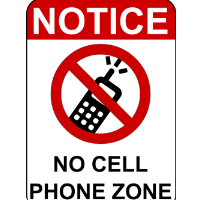Brown Veto Lets State Agencies Disrupt Protesters’ Cellphone Communications

Six months after Bay Area Rapid Transit (BART) officials disrupted a protest rally over police brutality by shutting down wireless service in the subway, the state Legislature unanimously passed Senate Bill 1160, requiring a court order before such actions can be taken.
On Saturday, Governor Jerry Brown vetoed the bill, echoing warnings from law enforcement that it would interfere with “barricade, hostage and emergency circumstances.” He applauded the legislation’s attempt to limit interruption of wireless service to only “the most extreme circumstances,” but said the bill was too restrictive.
BART’s unprecedented disruption of service in August 2011 occurred when protesters began to gather for a rally days after a BART police officer fatally shot a knife-wielding homeless man at the San Francisco Civic Center station. The transit agency enlisted the telecoms to kill cellphone connections underground.
BART was able to cut off service because of agreements it has with wireless carriers who operate a highly controlled network that can be turned off with practically a flip of a switch.
The ACLU said the “decision was in effect an effort by a governmental entity to silence its critics. . . . BART's actions must be seen in the context of today’s events. All over the world, people are using mobile devices to protest oppressive regimes, and governments are shutting down cellphone towers and the Internet to silence them.”
The shutdown triggered an investigation by the Federal Communications Commission (FCC), and—after the BART board of directors reviewed and validated its existing policy—the introduction of SB 1160 in February.
A protocol that directly addresses the issue has existed between the U.S. government and wireless providers since the 2005 London subway bombings, according to a Department of Homeland Security official interviewed by The Bay Citizen. The official said the department would discourage cutting service unless there is a specific threat of violence.
SB 1160 was supported by the American Civil Liberties Union Northern California, AT&T, BART, the California Chapter of the National Emergency Number Association, California Communication Association and The Utility Reform Network
The Los Angeles District Attorney’s Office and the Los Angeles Sheriff’s Department were listed as opposed on the bill, where the DA’s office made a spirited argument against it before the Senate Rules Committee.
–Ken Broder
To Learn More:
Brown Vetoes Bill Banning Cellphone Disruption (Associated Press)
San Francisco Subway Spokesman Says Cellphone Shutdown Was His Idea (by David Kravets, Wired)
California Transit Agency Cuts Cell Phone Service to Silence Protests (by Kevin Kearney, World Socialist Web Site)
Feds Probe BART's Unprecedented Cell Phone Shutdown (by Sydney Lupkin and Zusha Elinson, The Bay Citizen)
BART Under Siege as New Protests, Lawsuits Loom (by Zusha Elinson, The Bay Citizen)
Free Speech and BART Cell Phone Censorship (by Rekha Arulanantham, ACLU)
- Top Stories
- Controversies
- Where is the Money Going?
- California and the Nation
- Appointments and Resignations
- Unusual News
- Latest News
- California Forbids U.S. Immigration Agents from Pretending to be Police
- California Lawmakers Urged to Strip “Self-Dealing” Tax Board of Its Duties
- Big Oil’s Grip on California
- Santa Cruz Police See Homeland Security Betrayal in Use of Gang Roundup as Cover for Immigration Raid
- Oil Companies Face Deadline to Stop Polluting California Groundwater




